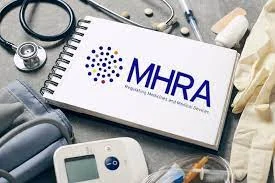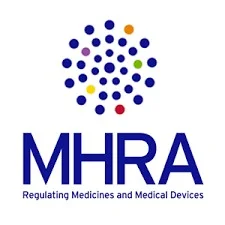In recent years, the consumption of food supplements has become increasingly popular. With claims of supporting overall health and well-being, it is important for consumers to be aware of the regulatory framework in place to ensure safety and quality. In the United Kingdom, the Medicines and Healthcare products Regulatory Agency (MHRA) plays a crucial role in overseeing the regulation of various healthcare products. But does the MHRA regulate food supplements? Let's delve into this topic further and gain a better understanding.

1. What are Food Supplements?
To comprehend the regulatory landscape surrounding food supplements, it is vital to understand what they are. Food supplements are concentrated sources of nutrients, including vitamins, minerals, and herbs, that are intended to supplement a person's diet. They come in various forms, such as tablets, capsules, powders, or liquids, and are usually labeled as dietary supplements or nutritional supplements.
2. Regulatory Framework for Food Supplements in the UK
The regulation of food supplements in the UK falls under different bodies, including the MHRA, the Food Standards Agency (FSA), and Trading Standards. The MHRA primarily regulates medicines, but there are instances where food supplements may be classified as medicines based on their composition or health claims.
3. The Classification of Food Supplements
Food supplements that are considered medicinal products fall under the umbrella of the MHRA's regulation. According to the Medicines Act 1968, a product is classified as a medicine if it is presented as having properties to prevent, treat, or cure a disease or if it makes specific health claims. This means that if a food supplement makes specific health claims or contains certain substances, it may be regulated as a medicinal product.
4. Health Claims and Regulation
The regulation of food supplements becomes particularly relevant when health claims are made. Health claims refer to any statement about a product that suggests it has specific beneficial effects on health. In the UK, the European Food Safety Authority (EFSA) evaluates health claims for food supplements based on scientific evidence. The MHRA works in collaboration with EFSA to ensure accurate and substantiated claims are made by manufacturers.

5. Traditional Herbal Medicinal Products
One specific category of food supplements that comes under MHRA regulation is traditional herbal medicinal products. These are herbal remedies that have been used for medicinal purposes for at least 30 years, including traditional Chinese or Indian systems of medicine. These products must undergo rigorous testing to ensure quality, safety, and efficacy before they can be legally placed on the market.
6. Quality and Safety Standards
Even though food supplements may not always fall under MHRA regulation, they still must comply with specific quality and safety standards. The FSA, in conjunction with Trading Standards, makes sure that food supplements meet legal requirements regarding ingredients, labeling, and advertising. Good Manufacturing Practice (GMP) guidelines are also mandated, ensuring the quality and safety of food supplement products.
7. Consumer Responsibilities
Consumers play an important role in ensuring the safety and efficacy of the food supplements they choose to consume. It is vital to select products from reputable manufacturers who comply with the necessary regulations. Additionally, consumers should consult with healthcare professionals before starting any new supplements, particularly if they have underlying health conditions or take
medication.

![]()
Conclusion
While the primary focus of the MHRA is the regulation of medicines, there are instances where food supplements may come under its purview. Health claims and the use of certain substances determine whether food supplements are classified as medicinal products. However, all food supplements, regardless of classification, must adhere to quality and safety standards set by the FSA and Trading Standards. As responsible consumers, it is essential to stay informed and make educated choices when considering food supplements for our own well-being.








